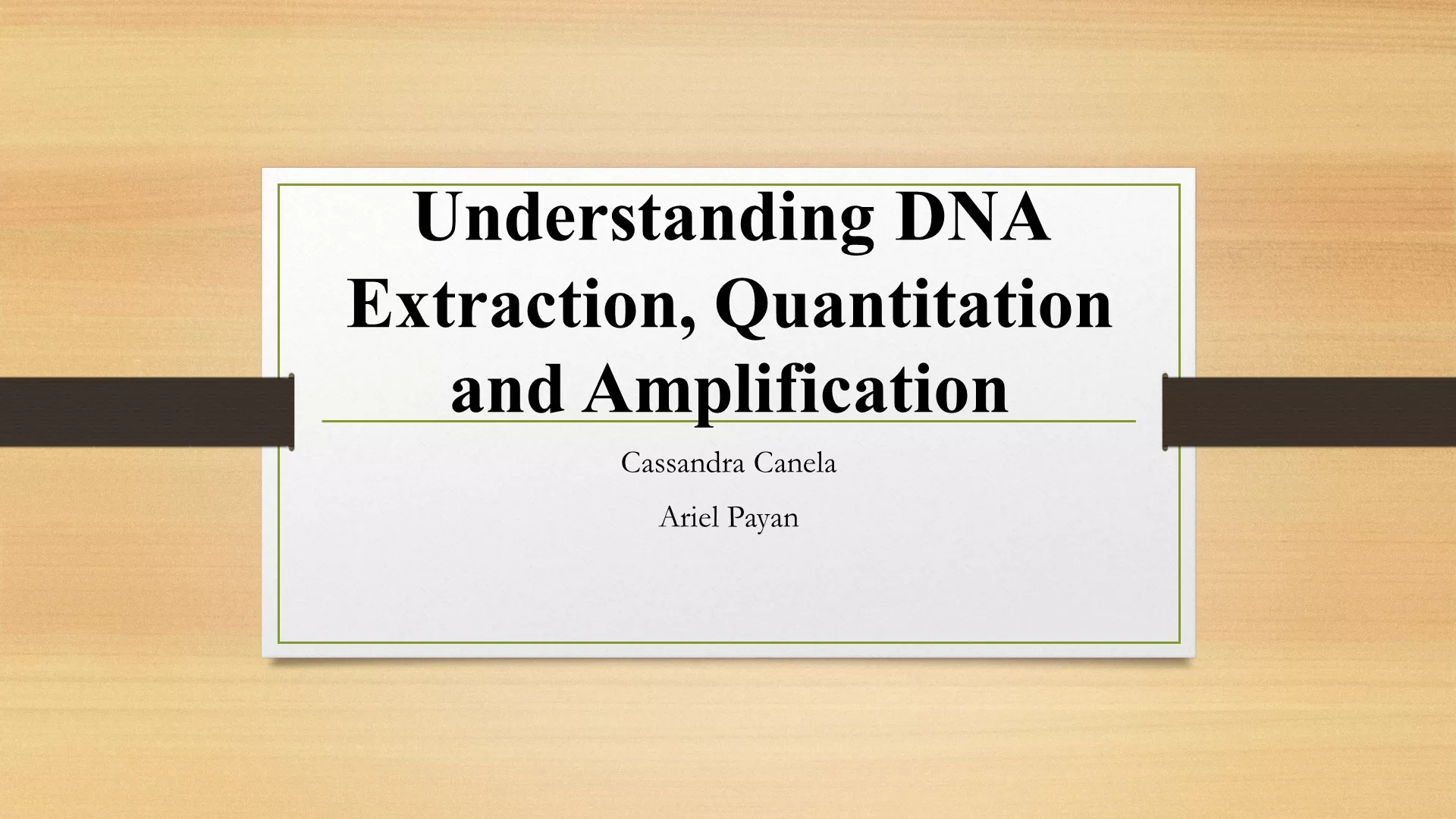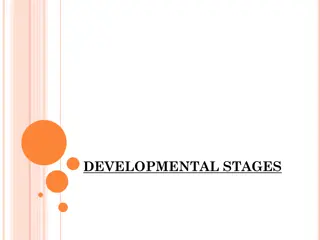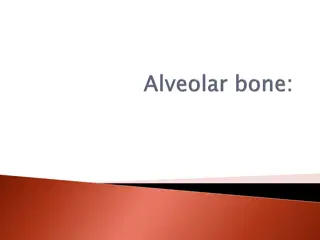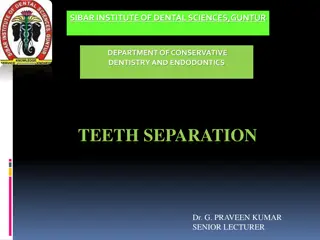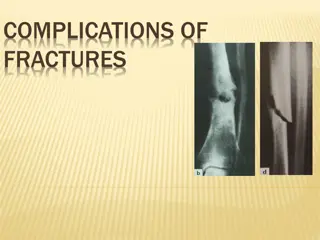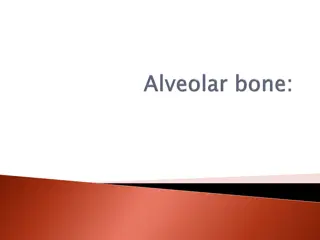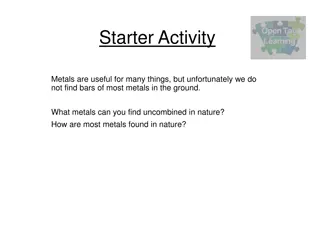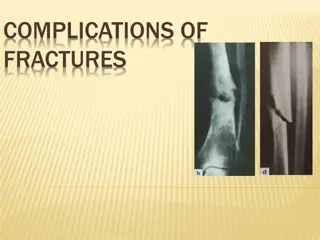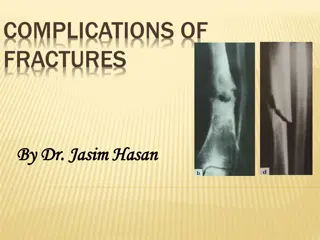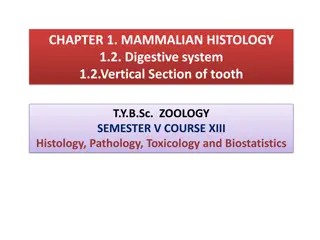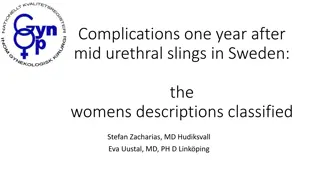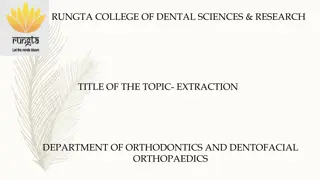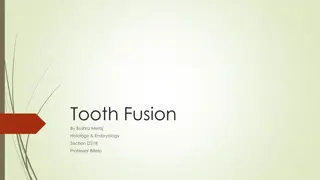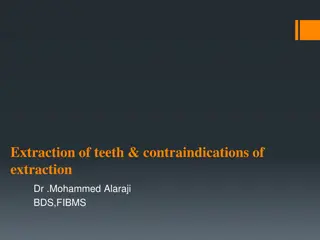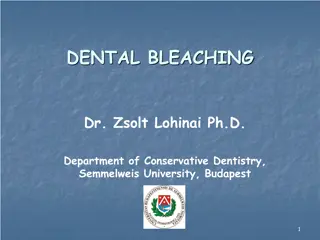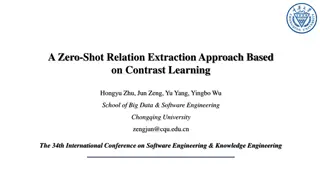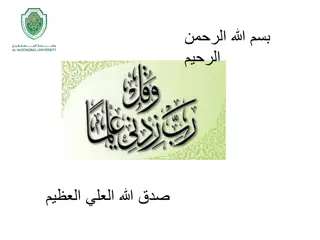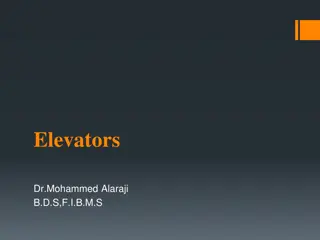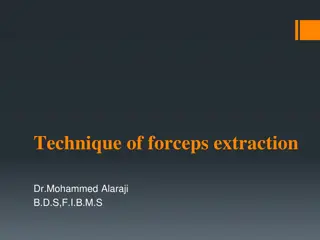Potential Complications in Tooth Extraction Procedures
Complications can arise during or after tooth extractions. Immediate and post-extraction issues such as haemorrhage need careful consideration and preventive measures. History of bleeding, use of anticoagulant drugs, and familial haemorrhagic conditions should be assessed to mitigate risks effectively.
Download Presentation

Please find below an Image/Link to download the presentation.
The content on the website is provided AS IS for your information and personal use only. It may not be sold, licensed, or shared on other websites without obtaining consent from the author.If you encounter any issues during the download, it is possible that the publisher has removed the file from their server.
You are allowed to download the files provided on this website for personal or commercial use, subject to the condition that they are used lawfully. All files are the property of their respective owners.
The content on the website is provided AS IS for your information and personal use only. It may not be sold, licensed, or shared on other websites without obtaining consent from the author.
E N D
Presentation Transcript
Introduction Complications can arise during the procedure of extraction or may manifest themselves some time following the extraction. A-Immediate extraction complications: These occur at the time B B- -Post extraction of the extraction Post extraction complications complications
Postextraction complications Postextraction complications can occur a variable length of time after the extraction..
Postextraction haemorrhage Haemorrhage is one of the complications that clinicians worry about most and it can seriously complicate the extraction of teeth. Prevention of haemorrhage is desirable. To achieve this, the patient must be questioned carefully as to any previous history of excessive haemorrhage particularly in relation to previous extractions . If a history of poste xtraction haemorrhage is elicited it is important to try and ascertain for how long the bleeding continued and what measures were used to stop the bleeding on previous occasions. It is also important to discover when the bleeding started in relationship to the time of the extraction. General questions regarding a history of prolonged bleeding after trauma or other operations, or a family history of excessive bleeding or known haemorrhagic conditions may be relevant. It is also important to question the patient about the use of drugs, such as anticoagulant drugs. If there is any doubt regarding the existence of a haemorrhagic .


